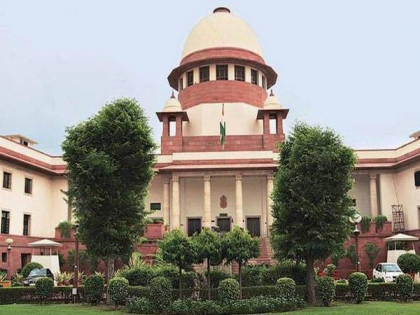SC declines WB's plea for appointing its own DGP without UPSC involvement
By ANI | Published: September 3, 2021 01:41 PM2021-09-03T13:41:40+5:302021-09-03T13:50:02+5:30
The Supreme Court on Friday declined to entertain a plea of the West Bengal government seeking permission to appoint its own Director General of Police (DGP) without the Union Public Service Commission's (UPSC) involvement.

SC declines WB's plea for appointing its own DGP without UPSC involvement
The Supreme Court on Friday declined to entertain a plea of the West Bengal government seeking permission to appoint its own Director General of Police (DGP) without the Union Public Service Commission's (UPSC) involvement.
The Bench of Justices LN Rao, BR Gavai and BV Nagarathna said the state had filed a similar application in the past too which had been rejected.
It said such applications are an "abuse of the process of law" and added that it is not expected from a state government.
The West Bengal government wants to have complete freedom to select DGP and has questioned the UPSC's role in the state DGP's appointment.
As the Bench refused to entertain the application, senior advocate Siddharth Luthra, appearing for the state, sought permission to withdraw it.
The apex court allowed the state to withdraw the application and also allowed it to implead in the main case relating to police reforms.
The state government has contended that the involvement of UPSC in the selection of the DGP of the state was not permissible under the Constitution of India and was against the federal fabric of the Constitution.
It has contended that UPSC has neither the jurisdiction nor the expertise to consider and appoint the DGP of a state as the same is not in consonance with the Indian federal System of governance.
The state has autonomy and ultimate power of superintendence over police officials, the West Bengal government stated in the application.
It said the apex court's landmark 2006 police reforms judgment erred legally and constitutionally by assigning the UPSC the task of selecting a panel of three officers for the post of a state DGP.
In the landmark Prakash Singh judgment, the top court had ruled that states were required to select the DGP from among three senior-most police officers empanelled by the UPSC to stop the states from selecting a regime sensitive police officer to the top post and had granted the DGPs a fixed tenure of two years irrespective of their age of retirement.
( With inputs from ANI )
Disclaimer: This post has been auto-published from an agency feed without any modifications to the text and has not been reviewed by an editor
Open in app